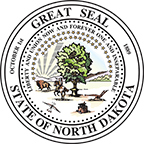Guidelines for Acceptable CE
Acceptable forms of CE courses:
1. Contact application: (may be referred to as face to face /on location course):
-
A course presentation that takes place in a physical setting with an attending provider physically present during the entire process. Attendees interact by verbal communication and/or physical touch (practical learning) to other attendees while the instructor/provider and/or their associates supervise.
-
12 continuing education hours are required by law to be hands-on tissue manipulation therapies and given in the physical presence of the class instructor/presenter or via live webinar.
2. Remote application:
-
Of the required hours, up to half of the hours can be by remote means and may include: Webinar /Podcasts that are not live-feed; DVD with written materials and student feedback.
Appropriate course content:
-
Application of general massage techniques as defined by NDCC 43-25 and ND Admin Code Title 49.
-
Massage business related topics. The LMT must submit an explanation on how this relates to massage.
-
Ethics (not hands-on): Patient/therapist boundaries, therapist confidentiality, courses offering an insight for specific needs of clientele (vulnerable populations), human trafficking, DEI
- Self-care courses (not hands-on) – such as yoga, self-defense, hand care, stretching, proper body mechanics for injury prevention.
-
Stretching as defined in NDCC 43-25-02(2a-3).
-
Courses outlining contraindications for massage therapy
-
Communicable diseases; prevention/infection control
-
Specialty training as pertaining to massage therapy: Diabetes, Cancer, Fibromyalgia, PTSD and other diagnosed illnesses that can be alleviated with massage.
-
Courses relating to massage therapy research – at board discretion
-
First aid training/recertification accredited by American Red Cross and/or American Heart Association (Hands-on)
-
Cardiac Pulmonary Resuscitation initial course and refresher courses (Hands-on)
- No-touch therapies that the board deems appropriate such as Reike
- Intraoral manipulation of muscles techniques
- Use of devices that mimic or enhance massage therapy treatment and care
- Attendance at a NDBMT regular meeting via in-person or virtual means (if virtual, the licensee must have camera on and be visible at all times during the meeting). Two hours per meeting with a limit of four hours per 2-year continuing education cycle. Not allowed for acting Board members
- College course(s) (not hands-on):
- Must provide a transcript showing course completion and passing grade. Transcript must show that class was taken within the two years prior to initial/renewal of licensing.
- Must provide a course syllabus with detailed explanation of how course pertains to massage therapy.
- Board review is required before approval. The decision is dependent on the course material submitted to the board.
Course content possibly considered by the Board (no guarantee of approval):
- Hours obtained while completing allopathic medical programs will not be considered for massage continuing education as it is out of scope of practice as per NDCC 43-25. Transcript and certification card is required for approval.
Non-acceptable course content, includes but is not limited to:
- Diagnoses of clinical conditions
- Implementation of allopathic medical/surgical procedures
- Physically invasive modalities, e.g., ear candling, intra-anal, intra-vaginal modalities, etc…
- Incorporation of chiropractic/osteopathic, e.g., ballistic, thrust oriented.
- Services and procedures which require additional licensure or certification outside massage therapy scope of practice.
- Prescription of herbs, nutritional supplements, and/or pharmaceuticals
- Performing hypnosis
- Performing esthetician procedures/modalities
- The use of devices that are not legally able to be purchased by the general public
- Psychological counseling
- Psychic, clairvoyance, telepathic, astrology, religious practices
- Modalities where the skin is pierced, cut, or penetrated – ie. dry needling, acupuncture, breaking or removing tissue from the body
- Massage on non-human life forms
- Other course material the board deems unacceptable
All courses submitted will be reviewed for approved criteria. Courses failing to meet the above criteria will not be approved, resulting in denial of a license renewal request. Licensed massage therapists may obtain more than the required hours, but only 24 hours will be accepted for a two year renewal period. Hours must be earned in the two years prior to renewal and no hours may be carried over into the next two year period.
DO NOT submit copies of your hours prior to your license renewal application. The Board does not keep track of the hours you earn throughout the two-year license period.
RANDOM AUDIT - A random audit will be performed in conjunction with the license renewal process. Only those therapists randomly selected for the audit will be required to submit proof of continuing education with the license renewal application. If you are selected for the random audit, you will receive an e-mail notice at the beginning of the license renewal period.
Required information on proof of completion document:
-
Name, date and location of course
-
Name of Instructor
-
Name of attendee
-
Number of continuing education units earned
-
ND LMT license number – can be written on document by licensee
